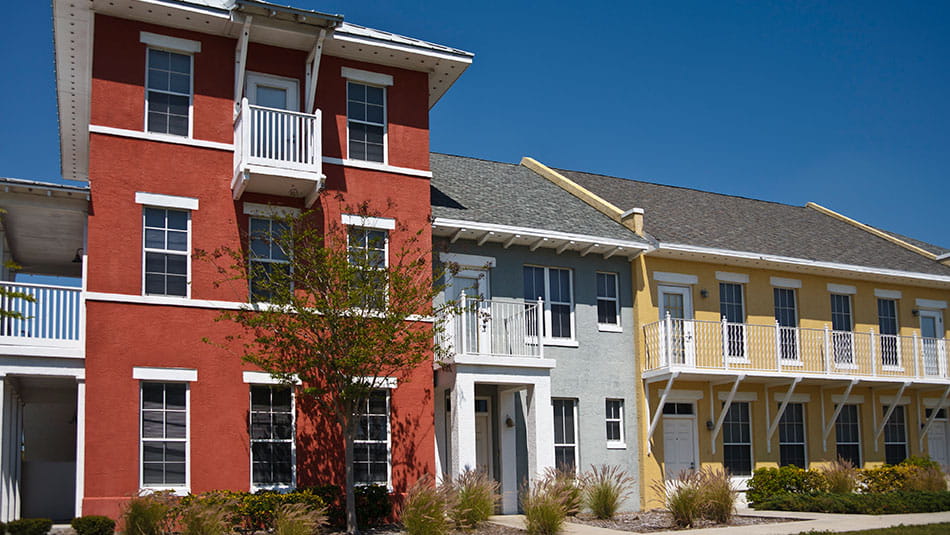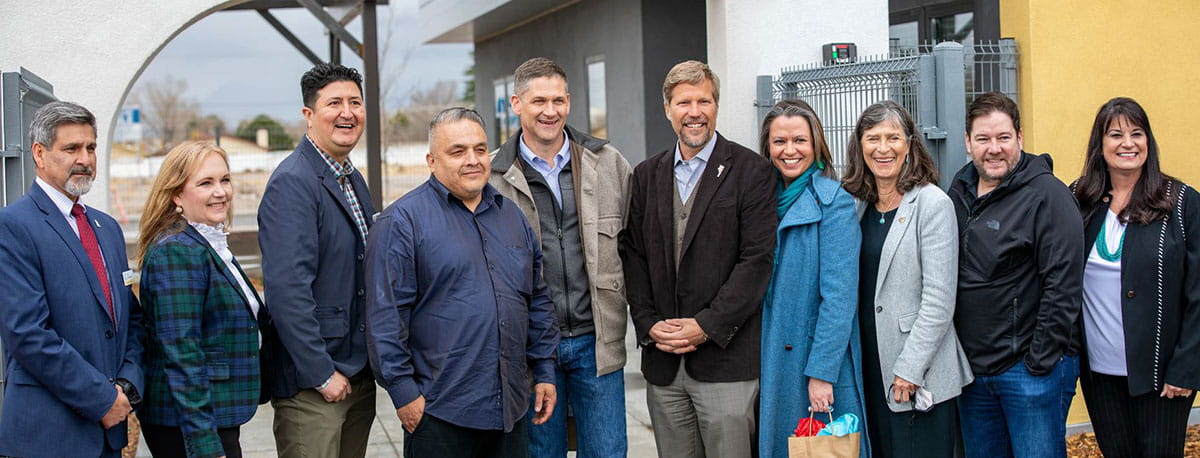Across America, many cities and states are grappling with the affordable housing crisis, and Oklahoma is no exception. More than one in five Oklahomans working full-time can't afford a one-bedroom rental at fair market rates; two in five are unable to afford a two-bedroom rental. For single parents and caregivers, the prospects of providing their families a roof over their heads are becoming increasingly untenable.
But there is a glimmer of hope on the horizon. The Oklahoma Coalition for Affordable Housing (OCAH) is working to find common-sense solutions to a complex issue. As Lisa Albers, a devoted advocate, secretary of the board of directors, and community development relationship manager at BOK Financial®, puts it, "Affordable housing is complicated, but having housing that families can afford is good for communities, it's good for towns and cities and—in the end—I believe everyone benefits."
The nonprofit advocacy group is working tirelessly to advocate for affordable housing across all 77 counties in Oklahoma.
On a mission
The state has a shortage of 81,638 rental units for extremely low-income renters. OCAH is working to change that.
"This organization is trying to bring awareness to the issue," said Albers. "The coalition promotes the building and support of affordable housing in Oklahoma, which looks different from county to county. What we need in Tulsa differs from what we need in a rural area. There's a huge need for affordable housing throughout the United States, and in Oklahoma, our various counties are no different."
The organization holds an annual affordable housing day at the state capitol, where they advocate for and promote affordable housing to legislators. They also meet with developers and builders to get consensus on issues and share it with the state allocating agency.
What exactly is affordable housing?
Financial experts generally agree that adults should allot no more than 30% of their income on housing costs. However, in many cities, the cost of available housing has far outpaced that limit. To help, the federal government has a dedicated tax credit to support the development of housing with affordable rents for lower-income persons.
Each state’s housing finance agency is responsible for allocating the state’s share of the tax credits to create and maintain affordable housing. Developers, both for-profit and non-profit, can apply and be awarded the tax credits, which in turn, are sold to investors who bring equity to the development. The tax credit equity can be coupled with bank financing and other federal, state and local funds to build or re-habilitate the housing.
Affordable housing can take many forms—from urban apartment complexes to rural duplexes or triplexes, and housing for low-income senior citizens, veterans, shelter for the unhoused, or housing for individuals with disabilities.
Creating thriving communities
Sometimes there is a misconception that affordable housing is for people who are unemployed. However, on average, 17 of the 30 most common professions in Oklahoma— including teacher assistants, home health aides, childcare workers and customer service representatives—don't make sufficient income to afford a two-bedroom rental.
Albers, who manages BOK Financial's affordable housing commercial lending line of business, is passionate about helping citizens get into stable, safe homes. "People that are working very hard to provide for their families should have decent, affordable and safe housing," she said.
To qualify for affordable housing, tenants must earn 80% or less of the median income in their area, which can vary greatly depending on where they live.
"Sometimes there is a stigma that you don't need affordable housing because it is a high-income area," Albers said. "Well, actually, you want folks to be able to afford to live where they work.
“Imagine your community without the people who work in the restaurants. What if you didn't have first-year teachers or retail workers or home health aides? I believe that everybody benefits from a diverse community where all working people can afford to live.”- Lisa Albers, community development relationship manager at BOK Financial
In Oklahoma, a person working a minimum-wage job must work 79 hours per week to afford a modest one-bedroom home at fair market rent. In some states, the number is even higher. Albers, a Tulsa Housing Authority Board commissioner, knew there was a need early on in her tenure at BOK Financial. “The bank is committed to serving the communities that we're in. We invest in the mission in several ways from lending money to investing in affordable housing projects to providing grants to allowing me to lend expertise to projects across our eight-state footprint."
The evidence is clear: investing in affordable housing yields significant returns. Every 100 affordable rentals built results in a $2.2 million boost in sales and other taxes, along with additional local government revenue from tolls, city fees and more.
"Building more affordable housing is a critical component of a thriving community supporting neighborhoods, families and businesses," said Albers.






